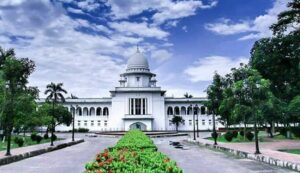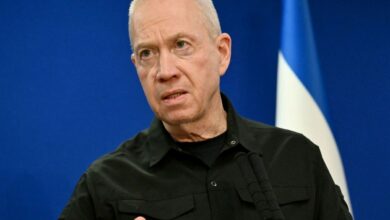Bangladesh High Court today partially struck down the 15th Amendment to the Constitution
According to the attorneys, the High Court Division of the Supreme Court of Bangladesh partly revoked the Constitution’s Fifteenth Amendment on Tuesday and restored the impartial, nonpartisan system of caretaker administration.

The decision was rendered by the High Court bench consisting of Justices Farah Mahbub and Debashish Roy Chowdhury. Senior Justice Farah Mahbub read the majority of the ruling.
The court noted in its ruling that political consensus served as the foundation for the caretaker administration. For this reason, it is now the foundation of the constitution.
According to the High Court’s view, the Fifteenth Amendment damaged the fundamental framework of the constitution. However, the total repeal of the Fifteenth Amendment is not going to happen.
The court also said that democracy is the foundation of the constitution. Democracy can only be established via acceptable and fair elections. Since the people are the source of all power, the constitution’s beauty lies in its ability to empower the people.
In 2011, the Supreme Court of Bangladesh decided that the caretaker government system should be abolished by the Fifteenth Amendment to the Bangladeshi Constitution.
Muhammad Yunus, the country’s chief adviser, said on December 16 that the country’s next general elections may take place in late 2025 or early 2026. He said this in his speech to the country on Victory Day, which commemorates Bangladesh’s triumph in the Liberation War of 1971.
Yunus emphasized in his speech how crucial political agreement is to holding elections. He said, “If political consensus allows us, again, to conduct elections based on accurate electoral rolls with a few reforms, it may be possible to hold elections by the end of 2025.”
However, Yunus admitted that more time could be required to put the required changes into effect. He went on to say, “And if we add to this the extent of reforms expected in terms of the electoral process and the Electoral Reforms Commission’s recommendations and on the basis another six months may be required.”
The election schedule might be set between late 2025 and the first part of 2026, he said. “Roughly speaking, the timing of elections can be fixed between the end of 2025 and the first half of 2026,” he said.
His remarks were made when Bangladesh was experiencing political unrest. Following weeks of demonstrations and violence that claimed over 600 lives, Prime Minister Sheikh Hasina was overthrown on August 5 by a student-led uprising. Yunus headed an interim government when Hasina fled to India.





